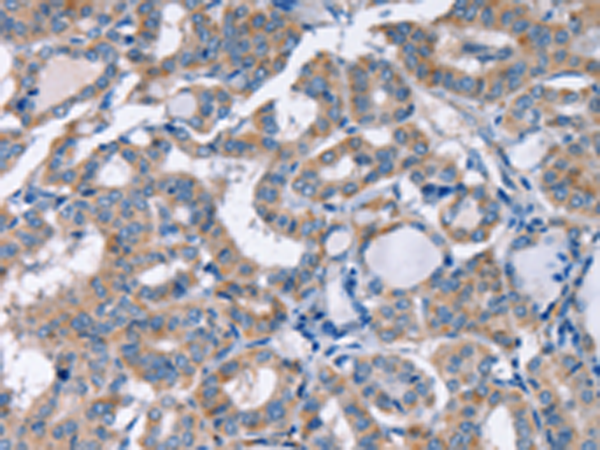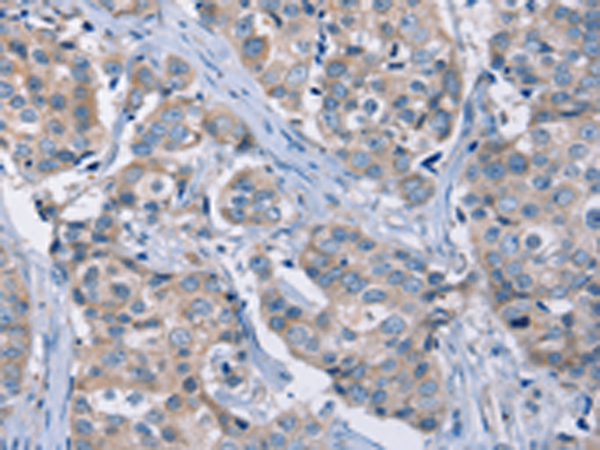


| WB | 咨询技术 | Human,Mouse,Rat |
| IF | 咨询技术 | Human,Mouse,Rat |
| IHC | 1/25-1/100 | Human,Mouse,Rat |
| ICC | 技术咨询 | Human,Mouse,Rat |
| FCM | 咨询技术 | Human,Mouse,Rat |
| Elisa | 1/1000-1/2000 | Human,Mouse,Rat |
| Aliases | Kv7.5 |
| WB Predicted band size | 102 kDa |
| Host/Isotype | Rabbit IgG |
| Antibody Type | Primary antibody |
| Storage | Store at 4°C short term. Aliquot and store at -20°C long term. Avoid freeze/thaw cycles. |
| Species Reactivity | Human, Mouse |
| Immunogen | Fusion protein of human KCNQ5 |
| Formulation | Purified antibody in PBS with 0.05% sodium azide and 50% glycerol. |
+ +
以下是关于KCNQ5抗体的3篇参考文献(简要概括内容):
1. **文献名称**:*"Characterization of KCNQ5 Antibodies for Localization Studies in the Brain"*
**作者**:Jensen et al. (2018)
**摘要**:研究验证了KCNQ5抗体的特异性,发现其在啮齿类动物和人类大脑中标记神经元胞体和树突,证实KCNQ5在调节海马和皮层神经元兴奋性中的作用。
2. **文献名称**:*"Role of KCNQ5 Channels in Vascular Smooth Muscle Function"*
**作者**:McCallum et al. (2020)
**摘要**:通过KCNQ5抗体检测,发现该通道在动脉平滑肌高表达,调控血管张力,并提示其可能成为高血压治疗的靶点。
3. **文献名称**:*"KCNQ5 Antibodies Reveal Sex-Specific Expression Patterns in the Heart"*
**作者**:Sánchez et al. (2021)
**摘要**:研究利用KCNQ5抗体发现心脏中性别差异性表达,雌性小鼠心肌细胞KCNQ5表达更高,可能与心律失常风险差异相关。
×